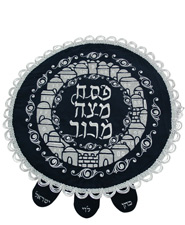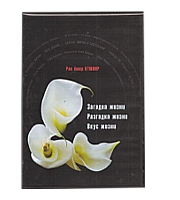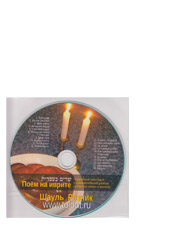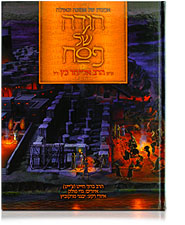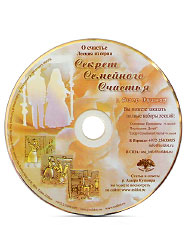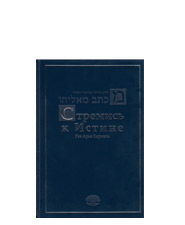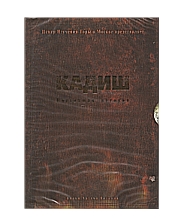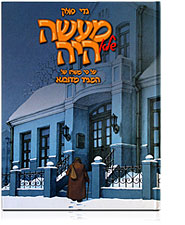
The Memoirs of Rav Yitzchok Zilber zt"l "To Remain A Jew" - Chapter 2: Rezhitza
I know about my grandfather only from stories. They said that he used to spend all day in the synagogue, wearing his tallis gadol and tefillin.
CHAPTER 2
REZHITZA
My grandfather, the Rezhitzer Rebbe
In the second half of the nineteenth century, Rav Naftali"s second son (he had three), Rav Yitzchak Tziyuni, headed the Jewish community of Rezhitza (now Rezekne) starting at the age of thirty-six. He was called the Rezhitzer Rebbe. His son, Rav Bentzion, was my father.
I know about my grandfather only from stories. They said that he used to spend all day in the synagogue, wearing his tallisgadol[1] and tefillin. He took them off only at sunset, when it was no longer a mitzvah to wear them.
There were many knowledgeable people in Rezhitza. My grandfather would listen to the questions and issues people brought to him in the synagogue. He would ask the opinions of the knowledgeable people on these matters first, and then render his own. In his will, he directed his sons to do the same thing.
I have to tell you that my father listened to my grandfather regarding this. I remember how during the war, while everyone was suffering from terrible hunger, my father allowed some kulahs[2] for the Jews of the
Kazan community. Father allowed the community to bake matzos on Pesach and to eat peas and other legumes on Pesach. He first discussed this matter with two other rabbis who were passing through
Kazan, and then rendered his decision in front of them.
On Friday evenings, as he passed Jewish stores on his way to the synagogue, the Rezhitzer Rebbe always made sure that they were closed before Shabbos started.
I happened to meet a woman who had stayed in Rezhitza at that time. She described to me the following scene:
She was standing on a quiet street one evening. Shabbos was coming. Suddenly, there was a lot of commotion. Everybody started rushing about and shouting, stores were quickly closing, shutters were clapping.
She asked, frightened, «What is it? What happened?»
They answered her, «Rav Yitzele is coming!»
People used to come from afar for the Rezhitzer Rebbe’s advice. Everybody knew of cases where the Rebbe’s words were ignored, with tragic results. He was both loved and feared. People like to tell stories about wise men. They told stories about my grandfather too. Below are two such stories.
One Erev Shabbos, some Jews were washing in the bathhouse. An argument started and one man slapped another, a melamed.[3] The Rezhitzer Rebbe saw it and exclaimed, «Rachmones, Yidden![4] Hit him back! Fast!» But nobody did. That night the melamed’s offender choked during the Shabbos meal and died. Then the Jews understood what the Rebbe had asked. If they had returned his slap, he would have avoided the more severe punishment.
The second story, about a barber, needs some introduction. Jewish law forbids shaving one’s face with a razor blade. Jews are allowed, however, to shave with a shaver. Everybody in town strictly followed this rule. Then one Jew opened a barbershop in Rezhitza and began shaving his customers with blades. The Rezhitzer Rebbe called him and warned him, «Listen, my son, it is forbidden to shave with blades. Do it the other way!»
That man promised, but after some time it became known that he was continuing to shave Jews with blades. (Maybe he used blades because they gave a cleaner shave than the shavers of those times, and for that, alas, there was a demand.) The Rebbe called him again. «My son, didn’t you tell me that you would stop?»
The barber objected, «Rebbe, I have to earn money some way. If I don’t shave this way, what will I eat?»
To which the Rebbe replied, «And if there is what to eat, so what?» And he did not add anything more.
Soon the barber became ill with cancer. He was fed the best food, but he could not eat.
A Jew from Rezhitza told me that as a boy he liked to follow the mysterious Rebbe around. Once he saw Rav Yitzele walking down the street, clad in tallis and tefillin as usual. He suddenly turned into a narrow crack between two houses and did something there. The boy waited until the Rebbe had left and then peeked into the crack. There lay a dog with puppies. The Rebbe had brought it food.
Once in
Kazan (I vividly remember
where we lived then) one of our neighbors, Gurevich, was visited by her mother. I began talking with her and told her that my father was from Rezhitza. «From Rezhitza? Where Rav Yitzele was?» she exclaimed. «He saved my mother!» And she related the following story:
Rav Yossele Ravinson (Kreslaver), the Rav of Kreslav, my great-grandfather, teacher and guide of my father
One spring morning my mother washed the laundry and, as was common practice then, went out to the river bank in order to rinse it. When she was passing the synagogue, the shamash[5] ran out and called to her, «Rav Yitzele is asking you to wait.»
She waited fifteen or twenty minutes. Finally the shamash came out and waved to her, «You can go now.»
The woman was surprised. Why did they delay her? But when she came to the river, she could not believe her eyes. The wooden platform upon which the women stood and washed had disappeared! While the woman had been waiting, on the Rebbe’s orders, the platform had been swept away by floodwaters. But what would have happened if she had been standing on that platform then, God forbid?
Rav Yitzele married for a second time to Chava, the daughter of Rav Yosele Kreslaver, a sage and a kabbalist. From his first marriage he had a few daughters and a son, Rav Dovid. From the second he had three daughters and a son, born in 1885, when my grandfather was already sixty years old. Rav Yitzele"s youngest son is my father.
My grandfather, Rav Yitzele, was my father"s first teacher. Later my father studied in the Slobodka Yeshiva and with Rav Yosele Kreslaver, his maternal grandfather.
Rav Yitzele died in 1900, at the age of seventy-five. My father learned of his father, Rav Yitzele’s last day from one Jew from Rezhitza. The Rebbe got sick and was treated, unsuccessfully, in
Warsaw. He traveled back from
Warsaw on an express train. Even though the train was fast, Rav Yitzele persistently repeated, «Gicher! Gicher! Gicher!»[6]
Surprisingly, the train arrived sooner than planned. The Rebbe was brought home and he died in his bed.
PARENTS
My mother Leah-Gittel was born in
My parents got married on 2 Tammuz 1914.[7]The newlyweds received many congratulatory telegrams from many notable rabbis of that time, among them Rav Meir Simcha of Dvinsk, known as the Ohr Samayach, and, I believe, Rav Yisrael Meir HaKohen, known as the Chofetz Chaim.
After their marriage, my father taught in the Rezhitzer branch of the Slobodka Yeshiva. Then World War I started. To avoid serving in the Czar’s army, my father changed his last name from Tziyuni to Zilber. (When we came to
Russia as Zilber would not be able to locate me. So I kept my last name.)
Living in Rezhitza, my father stayed in close connection with the great Rav Meir Simcha, rabbi of Dvinsk (
Daugavpils), author of MeshechChochmah and OhrSamayach. He used to call my father «mein kind.»[8]
Picture (p 25): Rav Ben Tzion Tzioni (Zilber), my father
Leah Gitel Zilber, my mother
In the beginning of the war they happened to be together for a short time, I think in Rezhitza. My grandfather, Rav Shapiro, was there too. When the morning prayers finished, the synagogue used to empty out, but three would remain: the Ohr Samayach (called after his book); my grandfather, Rav Moshe Mishel Shemuel; and my father. Together they studied Torah from morning until noon, forgetting about food. Later, when my father lived in
Kazan, he studied the same way right after the morning prayers.
I heard Rav Meir Simcha’s name in my father"s house throughout my childhood. But the story I want to tell you now came from an eyewitness, my neighbor here in
Israel, David Kil. Later I read this same story in the book SecurityandDemocracy written by the former head of the Mossad,[9]Isser Harel. Therefore, this story has at least two live eyewitnesses. In his book, Isser Harel describes something that happened when he was a teenager:
That year it happened that upstream of the
Dvina
River, the snow and ice started to melt suddenly and earlier than usual. At the time it was still very cold in the area from Dvinsk to
Riga
Bay. As a result of the melting, the water rushed into the
Riga
Bay, but it was met there by the still remaining snow dam. And so, the water started to rise rapidly. The storming river and huge pieces of ice caused great damage. Many nearby villages were swept away by the torrent and the bridges over the
Dvina
River were completely destroyed.
The gushing water was approaching the big snow dam that surrounded and protected Dvinsk. The shadow of death hung over the city…
On Shabbos morning the situation got desperate. At any minute the river would either overflow or break through the dam. My father didn"t know what to do, whether he should stay with the family at such a dangerous time or go to the morning service in the synagogue, to join in prayer with the rest of the community. Finally he decided to go to the synagogue and I joined him. In the middle of the prayers, which were unusually emotional and constantly interrupted by desperate screams, some Jews entered the synagogue with the frightening news: in a little while the city would be destroyed!
Rav Meir Simcha, covered with his tallis, rose up from his seat and went toward the dam. The whole community followed him in their Shabbos clothes. The Rav climbed on top of the dam and started to pray for the safety of the city. All of a sudden, while the Rav was still occupied in his prayers, the ice cracked, started moving, and with a loud noise, rushed to the downstream part of the river! The water started receding right in front of our eyes!
All of the citizens, among them Christians and even the hardened anti-Semites, did not doubt that they owed the righteous Rav for their miraculous salvation. The Rav himself, of course, did not take any credit. He had simply pleaded to God for mercy.
David Kil’s story matches this narrative. Kil only adds that the local authority mobilized everybody to help. Citywide prayer services met continuously, but the water kept coming. Then the Latvian government officially turned to the famous rabbi, the Ohr Samayach. He went to the city with his Tehillim (Psalms), prayed, and the flood stopped. This was an unbelievable KiddushHashem![10]
When the Soviet regime entered
Latvia, the Rav was arrested and ordered to be killed solely because he was a great Torah giant. Newspapers rushed to print that the rabbi had been shot, but the news turned out to be false. Luckily it was proven that the Rav was closer to the proletariat than he was to the bourgeoisie.
In 1926 the Ohr Samayach passed away. The Soviet newspaper Izvestia published a notice, «Famous Rabbi Died…» This is the only case I know of when the Soviet press mentioned the death of any religious authority.
Rav Meir Simcha died long before the Jews of Germany faced their tragedy. He had started working on his book MeshechChochmah when he was young.[11]At that time, German Jews flourished in unusual prosperity.
The Emancipation began in the nineteenth century. European Jews were certain that the time of freedom and equality with the Christians had arrived. The Reform movement started in
Germany. Jews who did not believe in anything religious, but still wanted to keep their national identity, started to talk about reforming Judaism. «We want to be Jewish,» they explained, «but we think there is a need to modernize our laws, to change some things. We can stay Jewish even if we eat treif[12]or drive on Shabbos.»
Today, having ample historical experience, we know that the Reform movement does not retain continuity for two or three generations. As a rule, reformists betray their own beliefs. I spoke about this phenomenon in my book The Flame Will Not Consume You (
Jerusalem, 1984):
During… the blossoming of German humanitarian philosophy, grateful Jews started to worship «cultural»
Germany… Reformists built their synagogues in the style of German churches, started to pray with the accompaniment of an organ, and included the singing of a women’s choir in the services… The most «progressive» among reformists moved the day of Torah-prescribed rest from Saturday to Sunday, and excluded from the prayer the words «… and bring us to Zion, your city, with songs, and to Jerusalem, the place of Your Temple with eternal joy.» They armed themselves with new ethics, which were proclaimed by the ideologists of this movement: «We cannot be hypocrites in service to God. We are grateful to Him for being fortunate enough to live in cultured, enlightened
Asia. How can we ask to return there?» It was precisely in Germany that the mass assimilation of Jews began, precisely there that voluntary conversion of Jews became routine, and precisely from there that the national disaster of the nineteenth and twentieth centuries spread to the rest of western Europe, Poland, and Russia — the schism from the Torah. As was expected, it was
Germany that soon became God’s weapon of revenge to punish His disobedient nation.
But long before these events happened, Rav Meir Simcha, in Meshech Chochmah, in his commentary on Bechukosai where the Torah talks about expulsion and dispersion, said surprising, prophetic words:
Jews are in exile already more than a thousand years. It is a long time, and people always want something new. There will appear erroneous thoughts, people will start criticizing what our fathers left as our heritage… In a short time people will say, «What our fathers left for us is not true.» Jews will start forgetting their roots… (They) will leave the teachings of their faith, will start studying foreign languages and will consider
Jerusalem. A Jew will forget that he is a stranger in a foreign land and will call it his motherland. And he will learn evil from the nations. But don’t you rejoice, O Jew, with the joy of other nations. A terrible storm will suddenly break out and will remind him with a thundering voice: «You are a Jew! Who made you a man? Leave this place!» It will uproot him, throw him far away, and it will be known to him that he is a stranger and his native language is lashon kodesh,[13] and foreign languages are like a garment that he wears. All this will happen to remind him that he comes from Jews. And his only consolation will be the words of God’s prophets that the Almighty will send Mashiach and he will come and save…
All of this was written around the end of the nineteenth century, perhaps at the beginning of the twentieth century. The author of these words died seven years before Hitler came to power. He lived in
Berlin! I don’t understand how he could write about a terrible storm coming while it was a time of flourishing. He was a holy man, for sure.
[1] Prayer shawl
[2] Leniencies in the method of fulfilling a commandment.
[3] Boys’ Talmud teacher.
[4] Jews, have pity!
[5] Worker, or attendant to the Rebbe.
[6] Faster, in Yiddish.
[7] June 26, 1914.
[8] My son, in Yiddish.
[9] Israel’s espionage agency.
[10] Sanctification of God’s Name.
[11] Though he sent it for publication at the end of his life.
[12] Food that is not kosher.
[13] The holy tongue, Hebrew.





